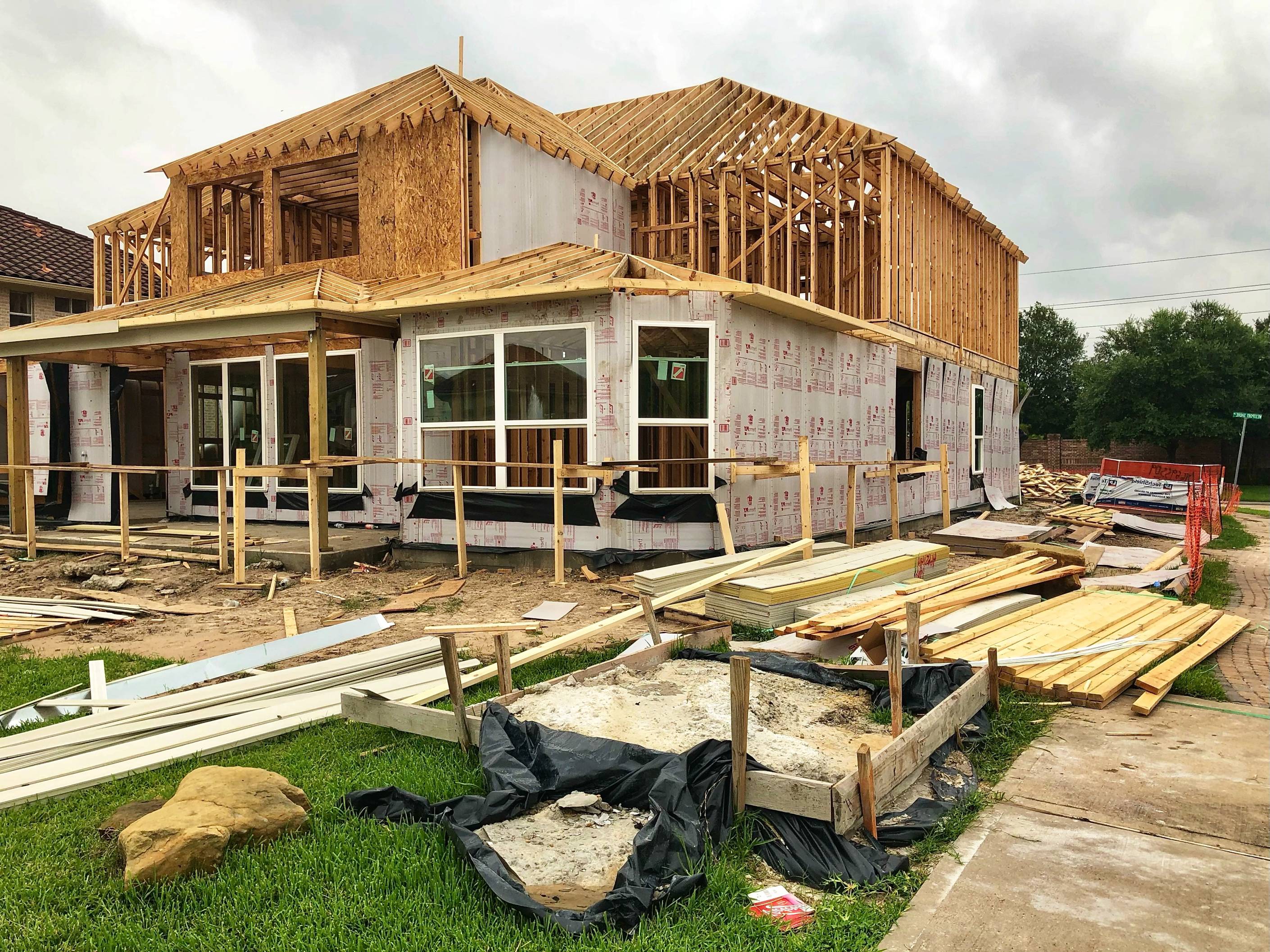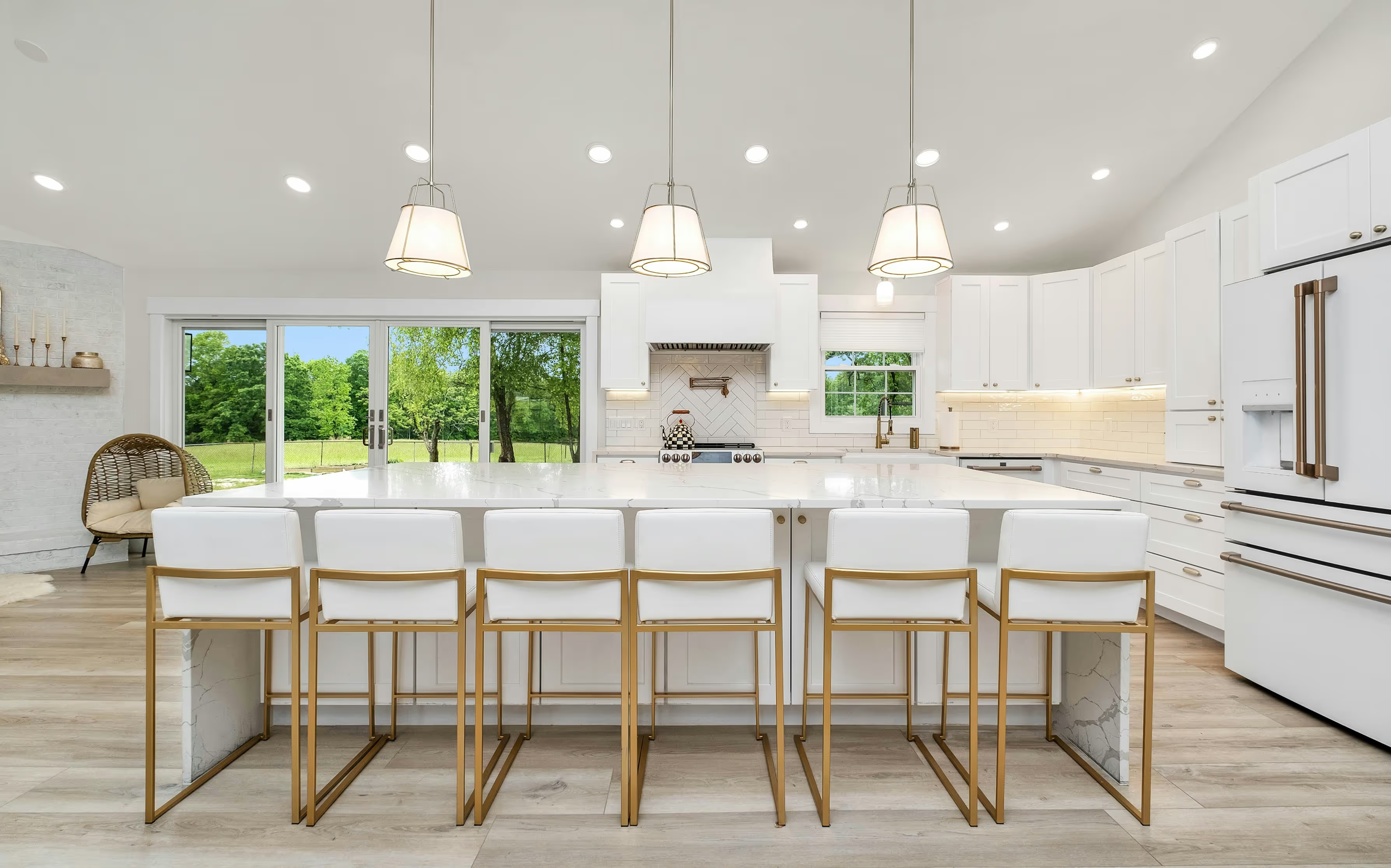May 14, 2025
How Much Does a New Addition Cost? A Guide for New Jersey Homeowners
5 min read time

Topics
Adding onto an existing home is a major decision that involves both financial planning and structural considerations. For homeowners thinking about this type of project, one of the first questions to answer is, how much does a new addition cost? The total investment depends on several variables, including the kind of space being added, the materials selected, labor availability, and local building requirements.
In New Jersey, where housing styles and zoning regulations can differ significantly from one town to the next, understanding these factors is especially important. This guide explains the most common types of home additions, outlines the key elements that affect pricing, and helps you prepare for the planning process with accurate expectations.
How Much Does a New Addition Cost by Project Type?
The type of room being added is one of the primary cost drivers. Each category of addition presents its own construction requirements, from utility connections to foundation work.
Below is a general cost range for various home addition types commonly seen in New Jersey:
Type of Home Addition
Bedroom or Home Office
$25,000 – $60,000+
Kitchen Bump-Out
$50,000 – $100,000+
Bathroom Addition
$35,000 – $75,000+
Garage or Mudroom
$40,000 – $90,000+
In-Law Suite or Guest Space
$80,000 – $160,000+
Second-Story Addition
$100,000 – $250,000+
These figures represent general estimates and can vary depending on square footage, site access, and the level of customization required.
Bedroom or Home Office Addition
A bedroom or home office addition typically involves basic framing, insulation, windows, and finishes such as drywall and flooring. These projects are generally less complex than those involving plumbing or extensive structural changes, which helps keep costs relatively low.
Kitchen Expansion
Expanding a kitchen often requires adjustments to plumbing, electrical systems, and HVAC. These projects also involve cabinets, countertops, lighting, flooring, and appliances. Because of these layered requirements, kitchen additions are among the more involved and expensive categories.
Bathroom Addition
The addition of a new bathroom includes plumbing installation, waterproofing, tile work, ventilation, and fixtures. Depending on the level of finish and the location of the addition within the home, costs can range significantly. Homes with older plumbing infrastructure may require upgrades, increasing the total cost.
Garage or Mudroom Addition
Garage additions offer utility and storage, while mudrooms provide transitional space between the outdoors and the home’s interior. Though these spaces are less complex than a kitchen or bath, they still require attention to structural design, insulation, and durable materials that can withstand seasonal weather changes.
In-Law Suite or Guest Apartment
An in-law suite may include multiple components: a bedroom, bathroom, living area, and potentially a kitchenette. These additions require electrical, plumbing, and sometimes separate HVAC systems. As a result, they are often considered one of the more substantial and higher-cost home addition types.
Second-Story Addition
When vertical expansion is necessary, a second-story addition can significantly increase living space. These projects typically require structural reinforcement, staircase installation, and extended utilities. Because of their complexity, second-story additions involve longer timelines and higher costs.
Additional Factors That Affect Home Addition Costs
While project type is the most visible cost factor, there are several underlying variables that impact pricing in New Jersey:
- Existing Home Condition: Older homes may need updates to support the new structure, such as reinforcing the foundation or upgrading the electrical system.
- Material Selections: Premium materials, such as hardwood flooring, custom cabinetry, or high-efficiency windows, will raise the overall investment.
- Permits and Code Compliance: New Jersey municipalities have varying zoning and permitting requirements. Certain towns may require architectural drawings, engineering reports, or historical approvals, adding to both cost and timeline.
The Role of Professional Support
Planning and executing a home addition requires coordination among contractors, engineers, and building officials. Hiring a licensed, insured, and experienced remodeling firm ensures that the work meets safety standards and passes local inspections.
A qualified contractor will also help identify any limitations with your property, advise on optimal layouts, and provide a detailed breakdown of costs so you can make informed decisions throughout the process.
Request a Professional Estimate for Your Home Addition
The true cost of a new addition depends on your goals, property conditions, and design preferences. If you're planning a project in New Jersey and need accurate pricing and guidance, the first step is a professional site evaluation.
Contact Breathe Easy Remodeling to schedule a consultation. Our team will review your space, discuss your priorities, and provide a clear, customized estimate for your home addition project.
Start Your Remodel with Confidence Today
From first conversation to final walkthrough, we keep the process simple, transparent, and on track. No surprises, no runaround — just honest work and clear communication.

